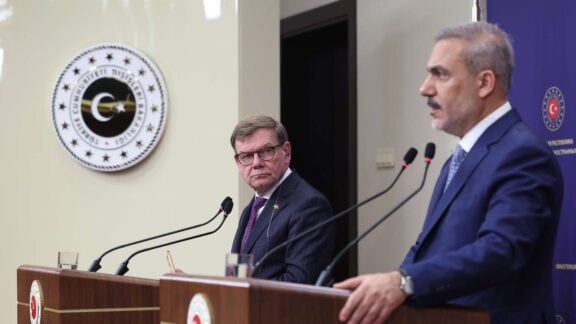The Greek Australian taxi licence holders that The Age named in their expose on taxi “titans” have hit back at accusations they dominate the industry and “consistently fight to lock new competitors out”.
John Vlassopoulos, which The Age named as a member of the eight big families and companies that hold more than 20 licences, feels he has been unfairly slandered.
“I was a bit disgusted by it to be frank,” he told Neos Kosmos.
“I thought it was slanderous, it was incorrect, they even had the licence numbers incorrect.”
The article entitled “Secret world of our taxi titans” published in the Saturday Age on January 5, names the Gange Corporation, owners of Silver Top Taxis; Cabcharge, which owns 13Cabs; the Granger family, which is linked to Silver Top and 13Cabs; John Vlassopoulos who owns Ambassador Taxis, Jim Dendrinos of Bayside Taxis; the Shehata family of ECM Taxi Brokers; Phillip Humphreys, who is linked to Silver Top; and Murrell Enterprises, which dominates Geelong’s taxi industry as the big players in the taxi industry.
The article goes on to accuse the Victorian Taxi industry of being “dominated by a few major taxi licence owners” who unfairly use their power for their own interests.
An accusation that Mr Vlassopoulos strongly denies.
“There is no evidence of that, and it doesn’t happen,” he says.
“The main competitor really is the government. They control the fare structure, they control the advertising. You cannot do anything in the taxi industry without the government’s permission. Really the state of the industry is in their hands.”
The government holds 1130 licences, and is by far the largest licence holder in Australia. Out of the eight The Age lists as hoarding licences, none even near the licence numbers the government holds.
Annually, the government profits $14 million a year on these licences, and does not need to pay for the licence fee a other prospective buyer has to pay (which averages around $500,000).
The taxi industry receives no funding from the government, unlike public transport which pockets around $2 billion a year.
Mr Vlassopoulos, who owns over 30 licences, is the director of Ambassador Taxis and a fleet operator, multiple wheelchair taxi owner and operator. He started his business like most in the industry by buying his first licence and driving his taxi for years and feels like his business will suffer following the comments published by The Age.
“I think it’s a very one sided point of view and I think my image has been tarnished,” he says.
“It’s a tall poppy syndrome, it’s attacking people in the industry without knowing the facts”.
The article named Vlassopoulos as the president of the newly formed Taxi Industry Stakeholders of Victoria (TISV) lobby group and implies that he along with other large licence holders are using lobby groups to their advantage.
Harry Katsiabanis the spokesperson of the TISV, and a taxi driver and licence holder himself says that the TISV has not been approached by any of the big licence holders mentioned by The Age.
“They’re not part of our association, and they have not attended any of our meetings. They’re not part of our group at all,” he says.
Licence holders do have a right to lobby to protect their investments, as any businessman would. That is why Professor Fels’ review has been attacked so vehemently.
The review promotes more competition by reducing the licence fee down to $20,000 a year over five years.
This will decimate the value of licences bought even just last year, which were up to $515,000.
As Mr Katsiabanis explains, most of the industry is made up of people with one or two licences and they will suffer the most.
“You’ll find most licence holders own one or two licences. We’re talking about 95 per cent of the industry,” he says.
Professor Fels has himself conceded when he handed in his final report in September last year that small-time licence owners risked taking a heavy financial blow under his reforms.
Much of the industry, especially in the last 50 years, is operated and driven by migrants, of which a large part is Greek.
All groups agree that reform must be made, but in a way that doesn’t harm the investment people have made.
Individual owners and drivers are powerless to make even small changes to their fleet, when reform attempts have been abandoned by the previous governments.
“Unfortunately what’s happened over the years, all the previous governments have created so much bureaucracy and red tape that they haven’t allowed innovation to take place,” Mr Katsiabanis explains.
“Our platform is to deliver a world class service to Victorians, that’s what we’re trying to achieve.”
Advertisement
No such thing as “Taxi Titans”
The taxi licence owners named in an article printed in The Age have hit back at “domineering” claims, and name the government as the elephant in the room







